
A rickshaw-wallah plying his trade early in the day near New Market in Kolkata
Brought to the city of joy by Chinese traders in the mid-19th century, the hand-pulled rickshaw continues its uncertain journey. Putting yet another spoke in its well-worn wheels is a recent proposal by the state government to upgrade Kolkata’s 6,000-odd rickshaws to battery-powered vehicles. While the details are sketchy as of now, in the offing is a sarkari rehabilitation package to help ease this transition to modern, humane ways.
Plying the narrow, cobbled lanes of old Kolkata, even when monsoon and water-logging renders everything else immobile, the rickshaw-wallahs usually rent their vehicles for ₹40 to ₹60 per day and earn anywhere between ₹100 and ₹500.
At odds with the ‘London-like’ vision of Kolkata long peddled by the state government, the rickety, hand-pulled rickshaw is not an embarrassment, however, to the men whose only source of income (no matter how meagre) it has always been.
Hailing largely from the neighbouring states of Bihar, Jharkhand and Odisha, the migrant rickshaw-wallahs live mostly on the footpaths. The rickshaw is both a provider by day and a shelter by night for many.
So, as the rhythm of their gentle tread on the streets, the distant tinkling of their bells, recede, one can only hope that their lives will take a turn for the better.
KR Deepak
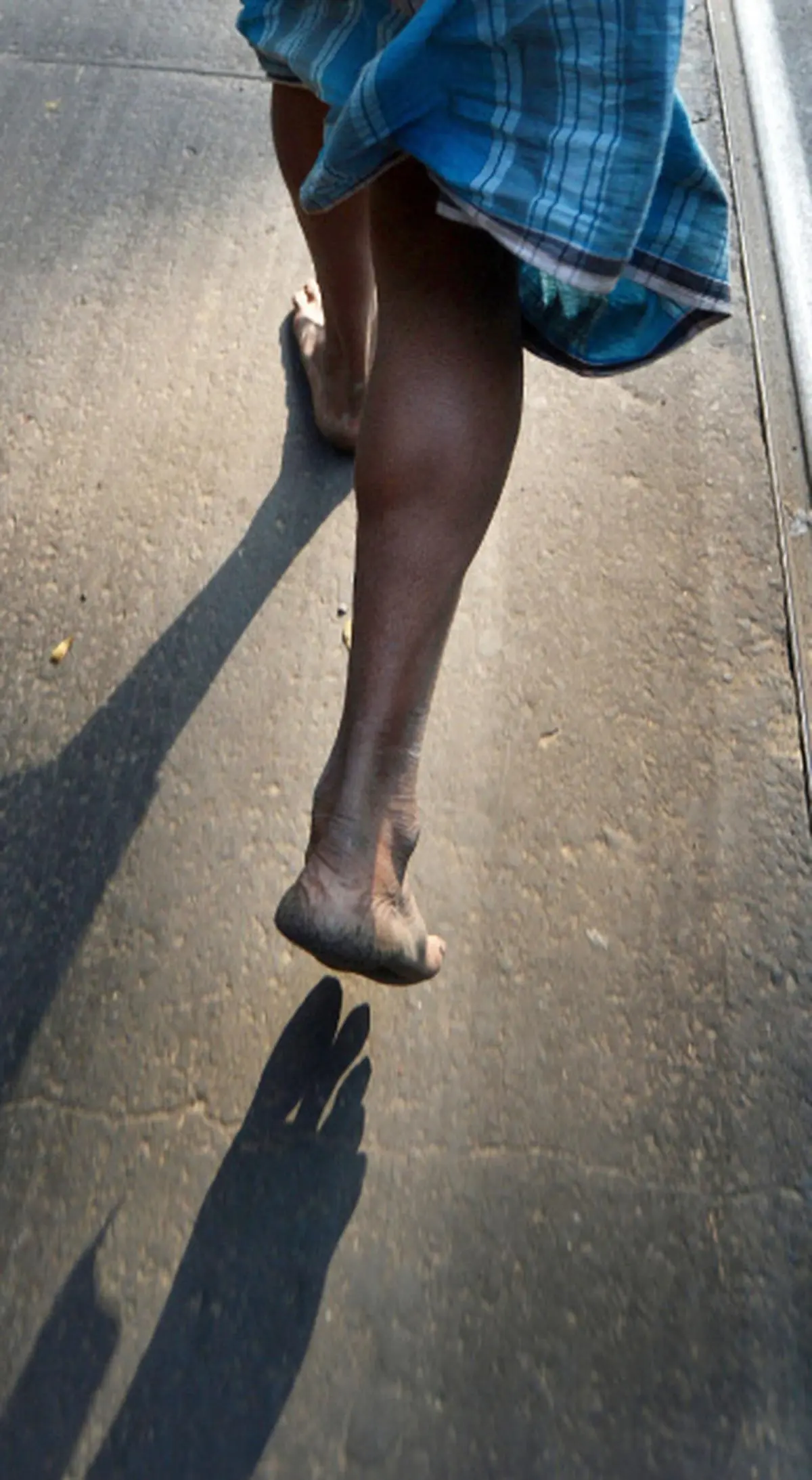
Barefoot on asphalt in the mild winters and harsh summers of Kolkata
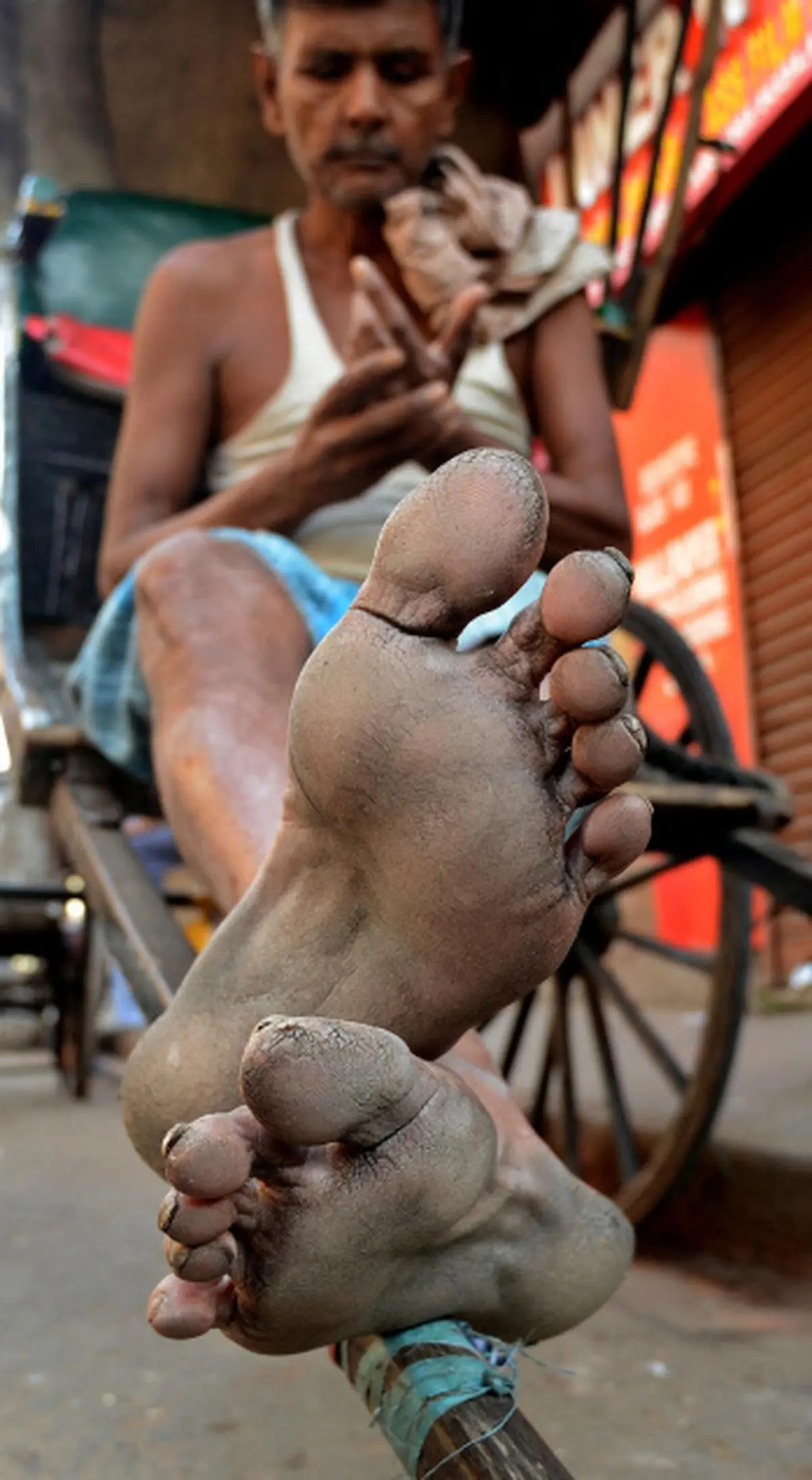
A quick break: Resting the calloused, worn-out feet awhile
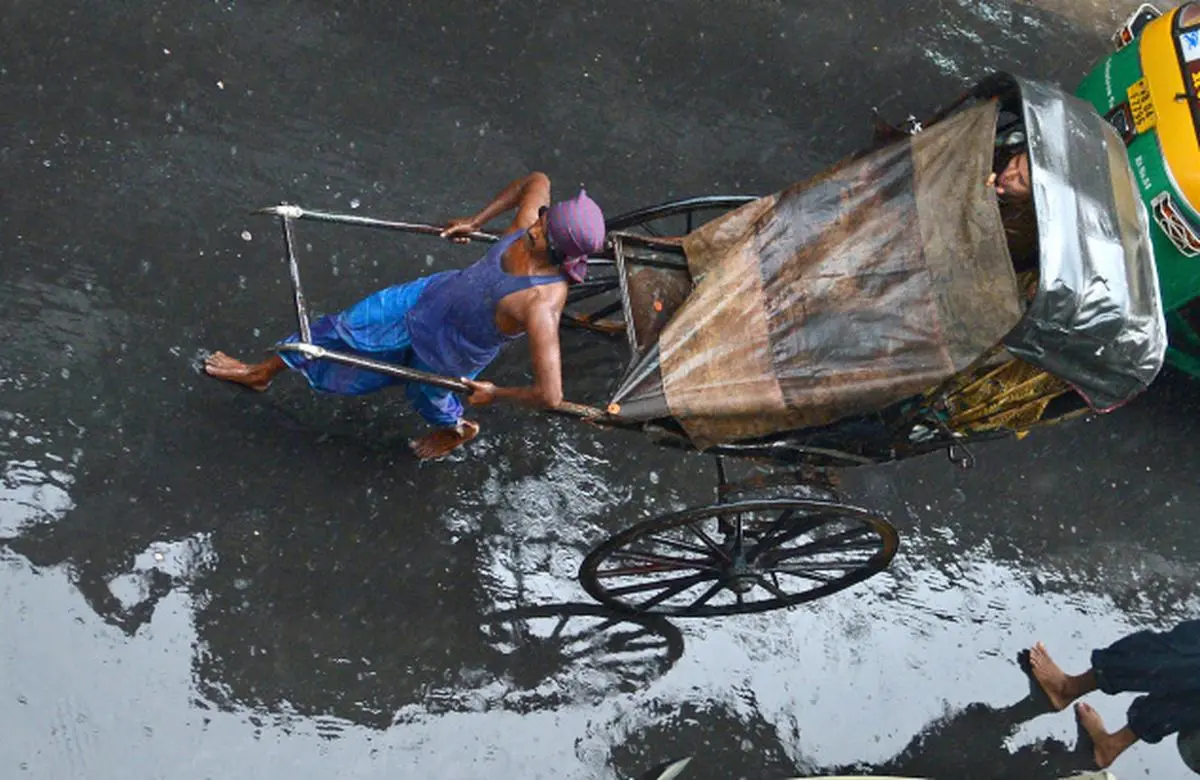
Braving the rain. The city is known for its incessant monsoon, when rickshaws become the only means to get around.
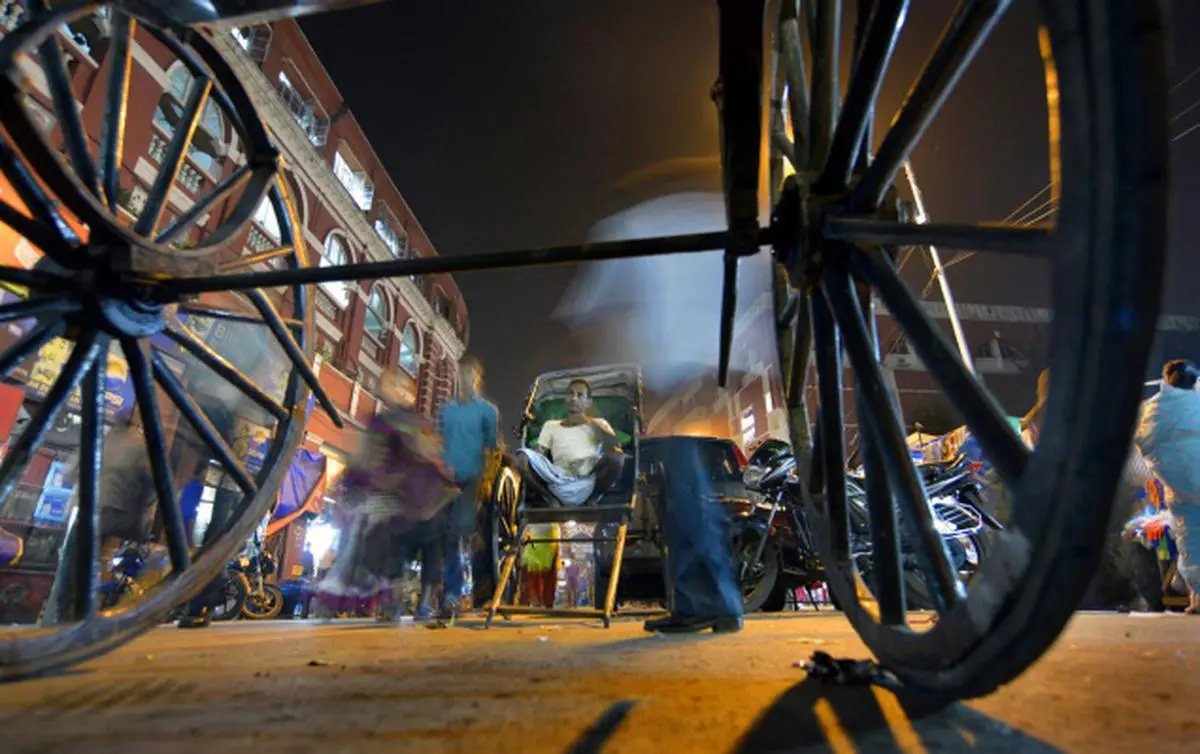
A rickshaw-wallah waits for passengers near New Market
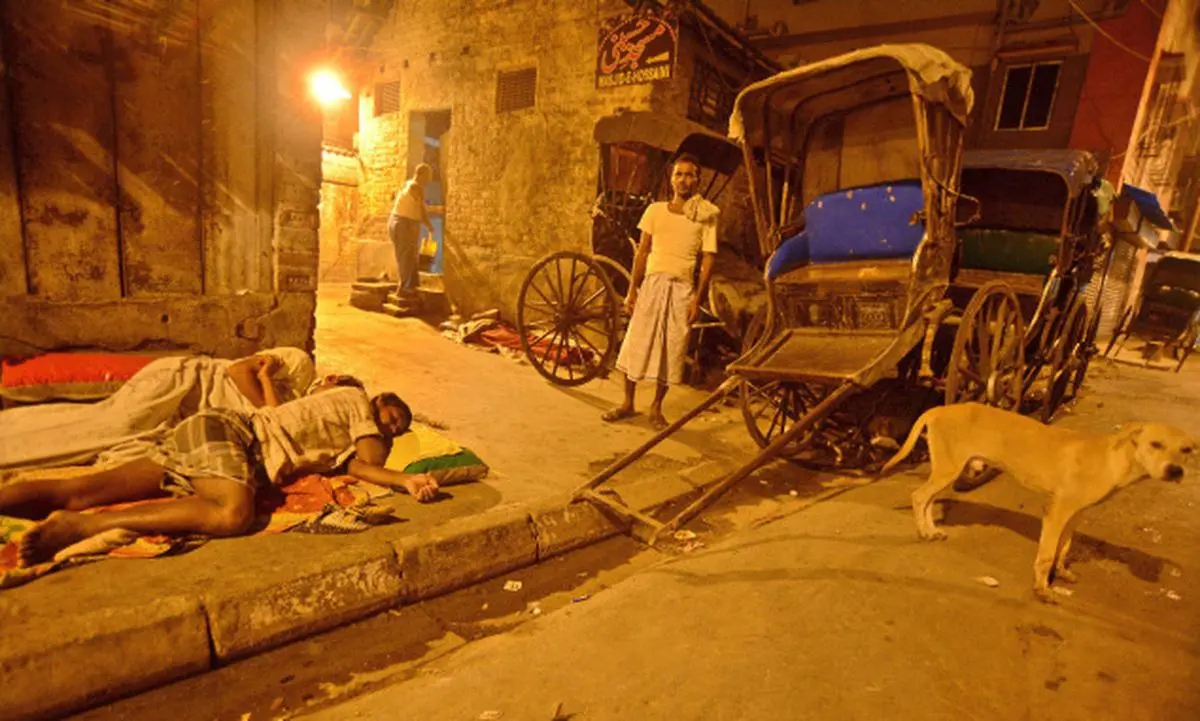
Sky for a roof: Sleeping on the footpaths near Alimuddin Street
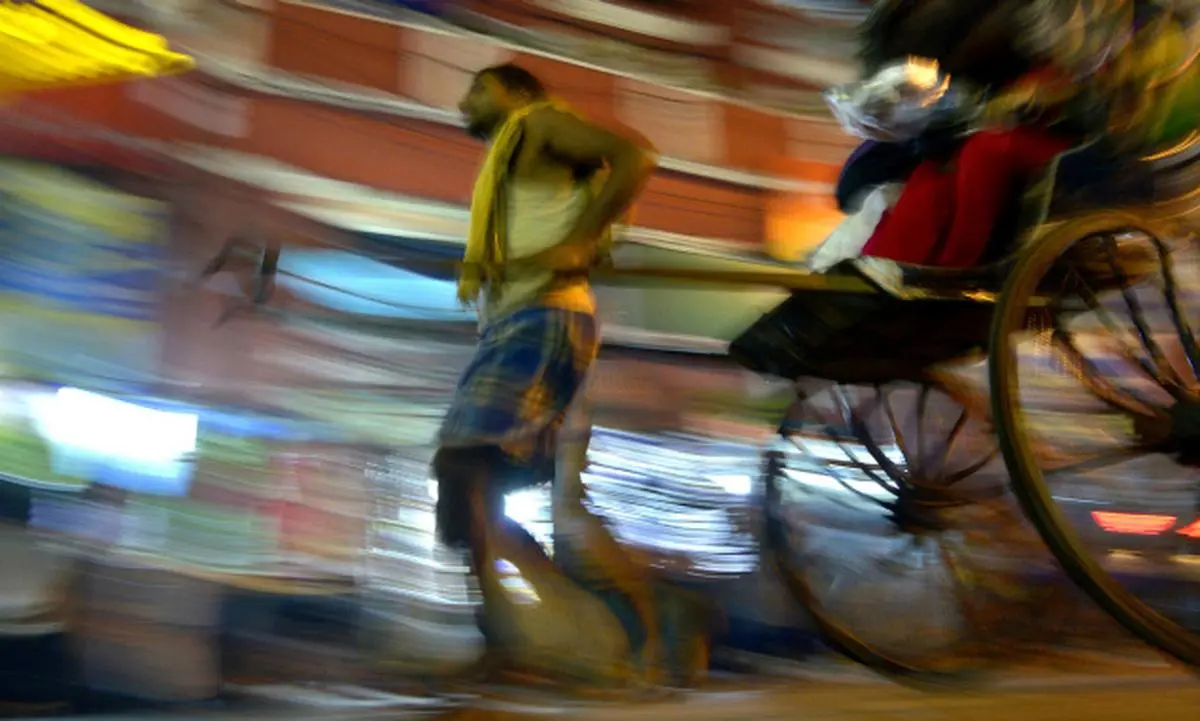
Faster than light: Even after a busy day, a rickshaw-wallah earns only about Rs 500
Published on February 13, 2015




Comments
Comments have to be in English, and in full sentences. They cannot be abusive or personal. Please abide by our community guidelines for posting your comments.
We have migrated to a new commenting platform. If you are already a registered user of TheHindu Businessline and logged in, you may continue to engage with our articles. If you do not have an account please register and login to post comments. Users can access their older comments by logging into their accounts on Vuukle.